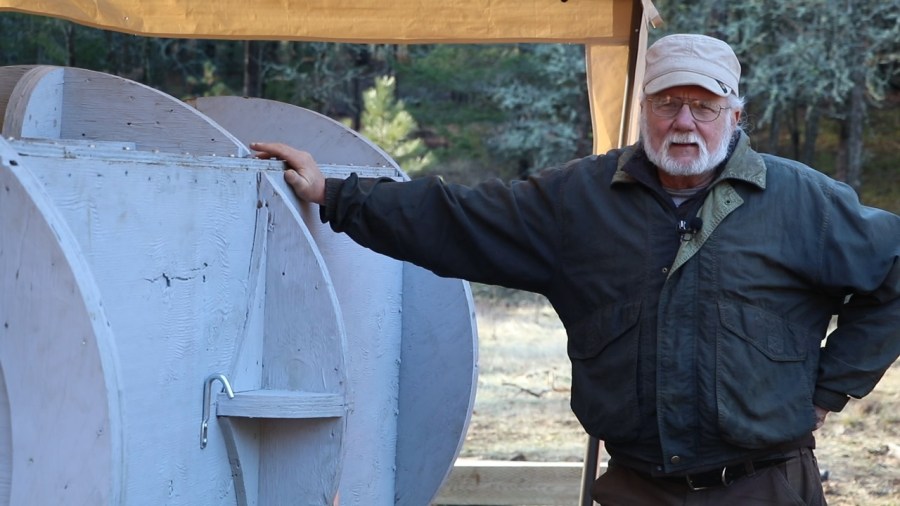PORTLAND, Ore. (KOIN) — Oregon is one step closer to allowing people to turn their bodies into soil after they die.
Oregon Gov. Kate Brown signed House Bill 2574 Tuesday. The bill will legalize what’s known as natural organic reduction, or what some refer to as human composting. It also clarifies rules surrounding alkaline hydrolysis, known as aqua cremation. The law goes into effect July 1, 2022.
Rep. Pam Marsh, from District 5 in Southern Jackson County, who co-sponsored the bill with Rep. Brian Clem, said she was excited to hear the news that the bill passed the Senate on June 8. She said she initially decided to sponsor the bill because constituents in her area are interested in alternative after-death options.
“My colleagues could see as well that in addition to providing families with a choice, it also is a business opportunity,” she said.
Elizabeth Fournier, owner of Cornerstone Funeral Services in Boring, Ore. and author of “The Green Burial Guidebook,” has already found a business opportunity in natural organic reduction. Her funeral service, which specializes in “green” and eco-friendly after-death services, has given clients the option of natural organic reduction since it was legalized in Washington in 2020.

Fournier takes the bodies to Herland Forest, in Wahkiacus, Wash. It’s a natural burial cemetery about 100 miles east of Portland that offers natural organic reduction.
In 2020, Fournier witnessed her first natural organic reduction and said it was an eye-opening experience.
“We laid this person into the cradle. We went ahead and took care of the process and as I rode home that day, down the beautiful river to cross the river and get over to Oregon I thought that was pretty special,” she said.
She said seeing the process for herself also made her more comfortable in talking to her clients about that option.
“That’s been a really neat thing to see, people getting excited about that and saying, ‘You mean I can take that soil home and I can go ahead and go out to Vern’s garden in the backyard and I can make all his plants and his shrubs more gloriously gorgeous with this juicy goodness?’ And the answer is yes,” she said.
As natural organic reduction becomes a reality in Oregon, Fournier is excited to see what’s to come and to share her knowledge with other funeral directors throughout the state.
Supporters say HB 2574 could also bring new businesses to the state. Recompose, one of the pioneering human composting companies in Washington, said it plans to open a location in Oregon within the next few years. The company has advocated for the House bill as it made its way through legislation.
Recompose said Oregon has a cremation rate of 74.3% and hopes that the option of natural organic reduction would help the state lower the number of fossil fuels and CO2 emissions that enter the atmosphere as a result of cremation. The company said natural organic reduction uses one-eighth the energy of cremation.
The company also said more than 700 Oregonians have signed up for its email newsletter, indicating there is interest for human composting in the state.
Marsh said she knows planning one’s funeral or making after-death plans for a loved one is a difficult task, but weighing the options and making a decision can bring about peace of mind.
“Although these are hard decisions, when we go through the process and are able to make choices that feel good and feel consistent with who we are and what we want and how we want to be remembered, that’s a really important experience,” she said.
Fournier hopes having the option of natural organic reduction readily available in Oregon will be a desirable option for many people.
“This is Oregon! People love their parks, people love their trails, people love their nature, people love their composting and that idea that somebody can become a tree… I think that’s really thrilling for people to know that their remains can absolutely help the environment,” she said.
Marsh said the state plans to have its rules in place for natural organic reduction facilities by 2022.
Colorado legalized the process in May 2021, which makes Oregon the third state in the U.S. to pass the law. Colorado’s law goes into effect 90 days after the governor signed it.
In the state House, three representatives voted against the bill: Raquel Moore-Green, Mark Owens, and Suzanne Weber. KOIN News reached out to these three representatives asking their thoughts on the bill. None of them responded before our deadline.
In the state Senate, Dallas Heard was the only one to vote against it. He said it wasn’t because of the merit of the bill. He said he’s currently voting against all bills until Oregon reopens its state Capitol.